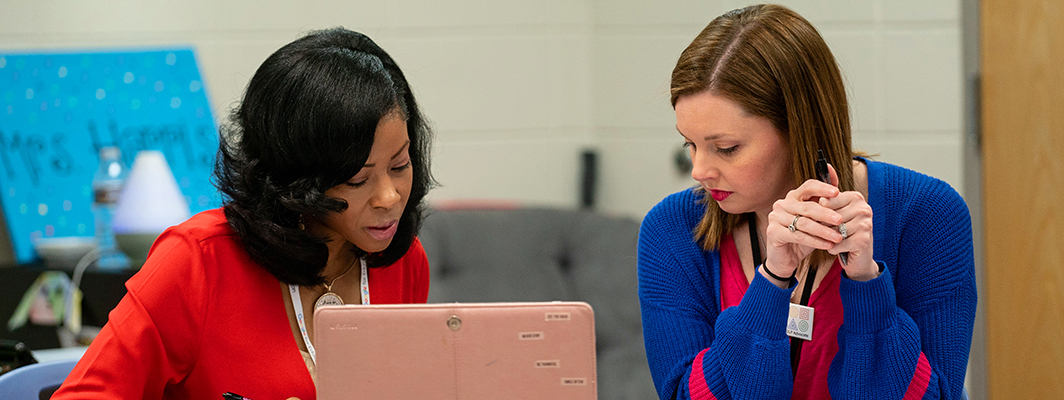
The national coaching survey shows that coaches throughout the country serve in multiple roles both within and outside the classroom. Moreover, they support large caseloads of teachers, which results in spending less time with each teacher. This situation may diminish the effectiveness of coaching programs.
Recommendation: Before assigning a coach tasks that are unrelated to their coaching responsibilities, districts should verify that coaches will still have adequate time to collaborate with teachers. Data from the Dynamic Learning Project shows that full-time coaches can typically work with an average of nine teachers at a time during each coaching cycle. Moreover, coaches should be able to spend at least 30 minutes with each teacher every week to see the greatest value.
Ongoing PD is critical to coaches’ growth in their coaching skills. The national coaching survey shows that coaches throughout the country are generally satisfied with the PD they receive, though coaches based in schools gave more favorable ratings than their district-based peers. Data from the DLP, however, shows that often, when expert teachers transition from the classroom into a coaching position, they become isolated in their new role and might deal with a variety of new challenges.
Recommendation: In addition to coaching resources and training, coaches benefit from access to ongoing mentorship. Coaches’ mentors can serve as indispensable thought partners who build capacity for strategic problem-solving. Said one DLP district leader: “Everyone needs a coach.” In addition, coaches benefit from active participation in professional learning networks (PLNs) inside and outside their districts. PLNs can help coaches become inspired and learn from a wealth of sources, develop familiarity with new tools and resources, and collaborate with peers on common challenges.
When used meaningfully in the classroom, technology can provide teachers with powerful ways to support student learning. However, many teachers in the U.S. do not have enough training to use technology in ways that advance learning, especially in low-income schools. The national coaching survey shows that coaches who support teachers in using technology are rated as more valuable resources by teachers.
Recommendation: We encourage district leaders to consider how technology coaching can fit meaningfully within current coaching and PD structures—not as an additional initiative divorced from larger goals. To this aim, coaches and teachers in the DLP utilize an Impactful Technology Use rubric to guide their integration of technology into existing goals.
According to the national coaching survey, fewer than half of the coaching positions nationally are funded at consistent rates from year to year. Longer-term investments in coaching could support comprehensive programs and ensure the hoped-for change. When teachers are not secure in their belief that a program is intended to be permanent, they may be less likely to engage. Moreover, longer-term coaching programs help coaches build strong relationships with teachers in their school(s), which is one of the cornerstones of collaborating with teachers that does not happen overnight.
Recommendation: Federal and state funds dedicated specifically to coaching could make implementing this high-impact professional learning strategy easier to sustain.
As instructional coaching becomes more and more prevalent in schools and districts across the U.S., leaders must have a deep understanding of what good coaching is and an unwavering commitment that all efforts are centered on the needs of the teachers and students in their specific context. Our recommendations based on the national coaching survey findings and the Dynamic Learning Project study aim to cultivate sustainable high-quality coaching.
Read the full report on the national coaching survey.